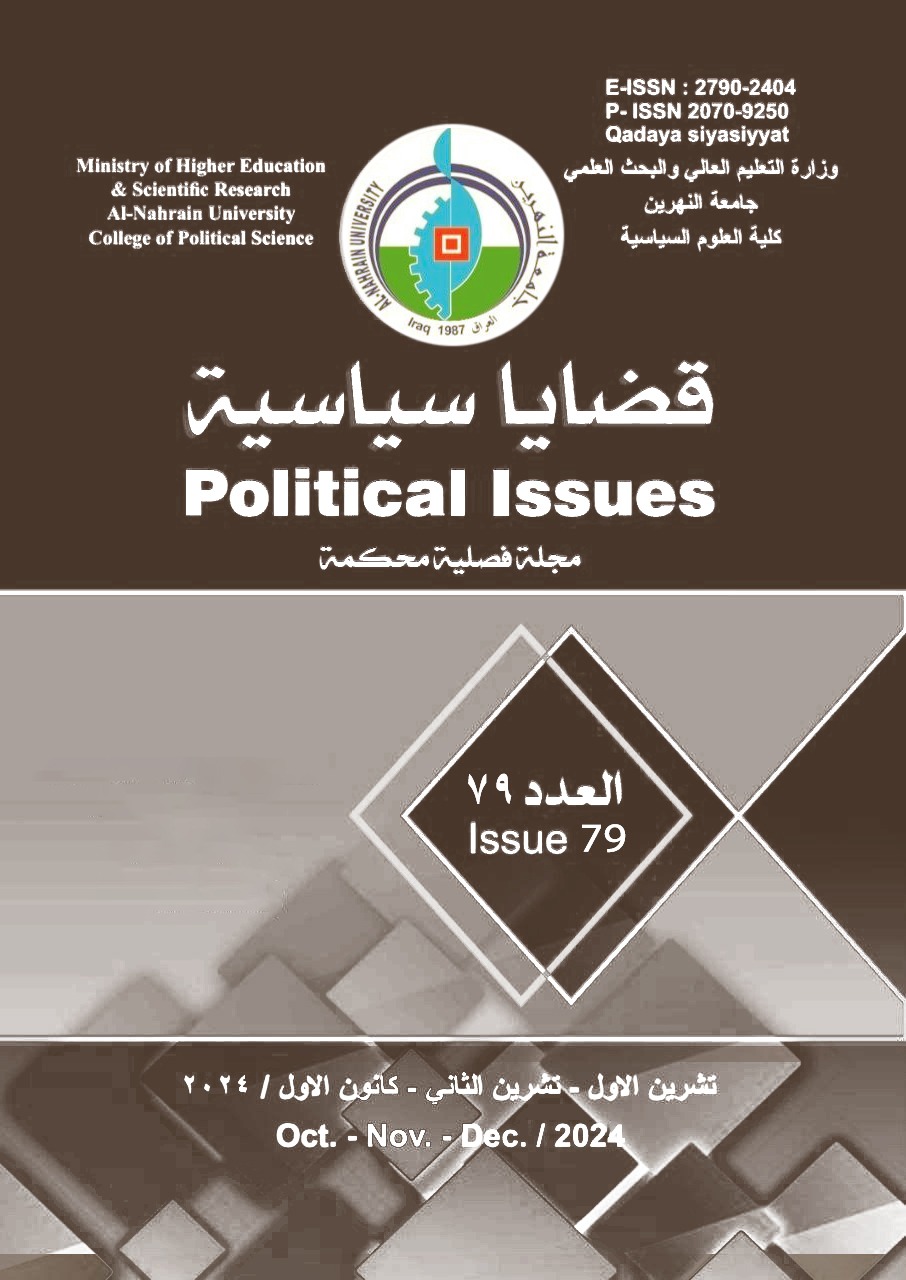Mechanisms for enforcing the obligations contained in the some treaties to combat terrorism
DOI:
https://doi.org/10.58298/792024650Keywords:
Counter terrorism, Treaties, International Agreements, International LawAbstract
Research Summary: The issue of combating terrorism is one of the goals that countries around the world seek to achieve through various means, given the magnitude of the challenge that this phenomenon represents at all levels - security, political, intellectual, economic, legal...etc. As a result of the above, interest has emerged in combating terrorism by concluding a group of international agreements since the existence of the League of Nations, where a treaty was concluded in 1937, which did not enter into force because a sufficient number of countries did not ratify it. After the establishment of the United Nations in 1945, a treaty was concluded. A group of international agreements that aimed to create an agreement framework to combat specific forms of terrorism included mechanisms to ensure the implementation of the obligations established or adopted by these agreements. However, it is noted that there is a clear difference between the mechanisms adopted by each agreement compared to other agreements at a time when modern forms emerge. For terrorism, such as cyberterrorism, biological terrorism, etc Thus, we go beyond the stage of forms of terrorism in its traditional or known historical forms, as terrorism is an ancient phenomenon, which requires activating the agreements to combat this dangerous phenomenon that threatens the security of humanity and international peace and security by developing mechanisms for compliance with the obligations established by these agreements, so that we move to the stage of ensuring compliance by creating... Mechanisms of an advanced institutional nature, which is the mechanism resorted to by the Shanghai Agreement concluded in 2001 relating to combating terrorism, extremism and separatist movements when it established a body called the “Center for Regional States Parties to Combat Terrorism in accordance with Article 10”. Among them, while we did not find any resort to such a mechanism in other agreements related to combating various forms of terrorism, as the enforcement mechanisms were limited to emphasizing the necessity of adhering to the aforementioned agreements in application of general and basic legal principles without finding means of compliance of an institutional nature, as these general legal principles were represented The basic principles are the principle of Good Faith, the principle of fulfillment of the covenant (pacta sunt servant), and the general commitment to solidarity. And implementing the principle of cooperation and mutual assistance, implementing the principle of the obligation to extradite or prosecute, taking legislative measures, creating judicial jurisdiction, implementing the principle of reporting and resorting to investigation, and negotiating and arbitration mechanisms, as well as resorting to the International Court of Justice to settle any disputes related to the agreements related to combating terrorism, as well as The Arab Convention to Combat Terrorism concluded in 1998 created media and educational mechanisms that we did not find parallels in most other agreements.
References
Human Rights in the Administration of Justice, a Manual on Human Rights for Judges, Prosecutors and Lawyers, Episode No. (9) of the Professional Training Series, Office of the United Nations High Commissioner for Human Rights in cooperation with the International Bar Association, United Nations, New York, Geneva, 2003.
Yearbook of the International Law Commission, Volume II, Part One, 2008, Documents of the Sixtieth Session, United Nations, New York, Geneva, 2016, (A/CN.4/SER.A/2008/ADD.1"Part1")
Report of the Secretary-General, Measures to Eliminate International Terrorism, Fifty-Second Session, Item 154 of the Provisional Agenda (A/52/304) on 28 August 1997.
Khalil Hussein, Combating International Terrorism in International and Regional Conventions and Resolutions, First Edition, Al-Halabi Legal Publications, Beirut, Lebanon, 2012.
Sami Jad Abdel Rahman, State Terrorism in the Framework of Public International Law, Manshat Al-Maaref, Alexandria.
Tariq Muhammad Qutb, Combating Terrorism and Compensating Victims of Terrorist Incidents in the International and Egyptian Domains, Dar Al-Nahda Al-Arabiya, Cairo, 2015.
Madeleine Albright, Bill Woodward, translated by: Omar Al-Ayyoubi, The Powerful and the Powerful/Reflections on Power, Religion, and International Affairs, First Edition, Dar Al-Arabiya for Sciences, Beirut, 2007.
Additional Files
Published
Issue
Section
License
Copyright (c) 2024 حيدر ادهم الطائي

This work is licensed under a Creative Commons Attribution 4.0 International License.
This is an Open Access article distributed under the terms of the creative commons attribution (CC BY) 4.0 international license which permits unrestricted use, distribution, and reproduction in any medium or format, and to alter, transform, or build upon the material, including for commercial use, providing the original author is credited.






